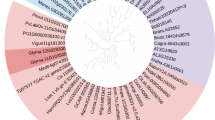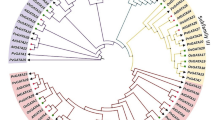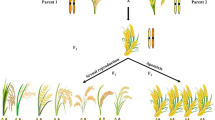Abstract
Four mutants of Arabidopsis thaliana that are deficient in adenine phosphoribosyl transferase (APRT) activity have been isolated by selecting for germination of seeds and growth of the plantlets on a medium containing 2,6-diaminopurine (DAP), a toxic analog of adenine. In all mutants, DAP resistance is due to a recessive nuclear mutation at a locus designated apt. The mutants are male sterile due to pollen abortion after meiosis. Furthermore, it has been shown that metabolism of cytokinins is impaired in the mutant BM3, which has the lowest level of APRT activity among the mutants tested. However, three different cDNAs encoding APRT have been isolated in A. thaliana and this raised the question of the nature of the mutation which results in low APRT activity. The mutation was genetically mapped to chromosome I and lies within 6 cM of the phenotypic marker dis2, indicating that the mutation affects the APT1 gene, a result confirmed by sequencing of mutant alleles. The mutation in the allele apt1-3 is located at the 5′ splicing site of the third intron, and eliminates a BstNI restriction site, as verified by Southern blotting and PCR fragment length analysis.
Similar content being viewed by others

Author information
Authors and Affiliations
Additional information
Received: 20 February 1997 / Accepted: 28 August 1997
Rights and permissions
About this article
Cite this article
Gaillard, C., Moffatt, B., Blacker, M. et al. Male sterility associated with APRT deficiency in Arabidopsis thaliana results from a mutation in the gene APT1 . Mol Gen Genet 257, 348–353 (1998). https://doi.org/10.1007/s004380050656
Issue Date:
DOI: https://doi.org/10.1007/s004380050656



